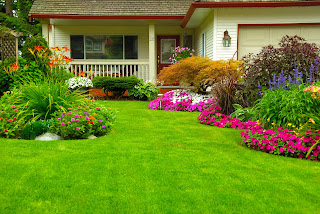
A home is more than just the walls around you, it also includes the property which surrounds it. Whether you have a palatial mansion on hundreds of acres, or a quarter acre of grass, you can do a lot with what you have if you know what you're doing. Read on for tips that will help anyone to make their property more beautiful.
Think about making a drawing of your prospective landscaping project before you begin the work. You'll be able to get a clear idea of the results and the materials needed to achieve those results. This helps because you don't have to actually make changes to see what they would look like.
You do not have to hire a professional to design your landscape for you, but it might be worth your time and money to quickly meet with an architect. You will get a better idea of how much your project will cost and perhaps avoid mistakes that would end up costing you money.
Do not plant too much of the same plant in your garden unless it is one that can withstand all type of weather conditions. If you place the same kind of plants throughout your garden and they die during an off season you will be left with a bare yard.
Think about whether or not you need to have a design for your project. It might cost less money to create a deck that is in a rectangular shape, but if you do not like the end result, you probably won't use the space. Spending a bit of money to hire a designer could help you get exactly what you want.
It could be resodding the dead parts of your grass, planting rosebushes or even, putting in a pool, because landscaping can be as small or as grand as you choose it to be. Whatever your budget, timeline or skill level, the ideas in this article can help you to create the yard that meets your wants and needs. Get your shovel and get to work!








